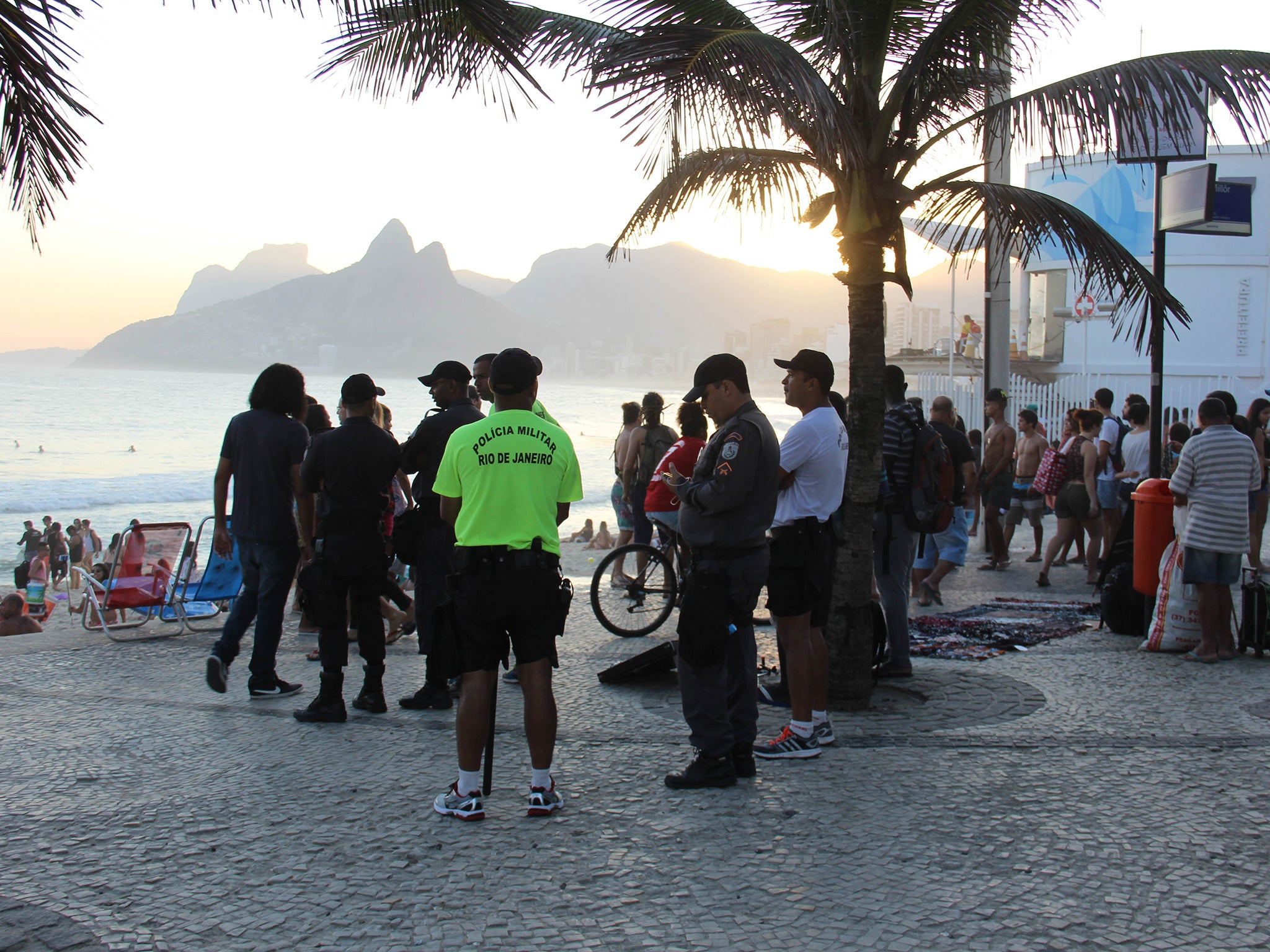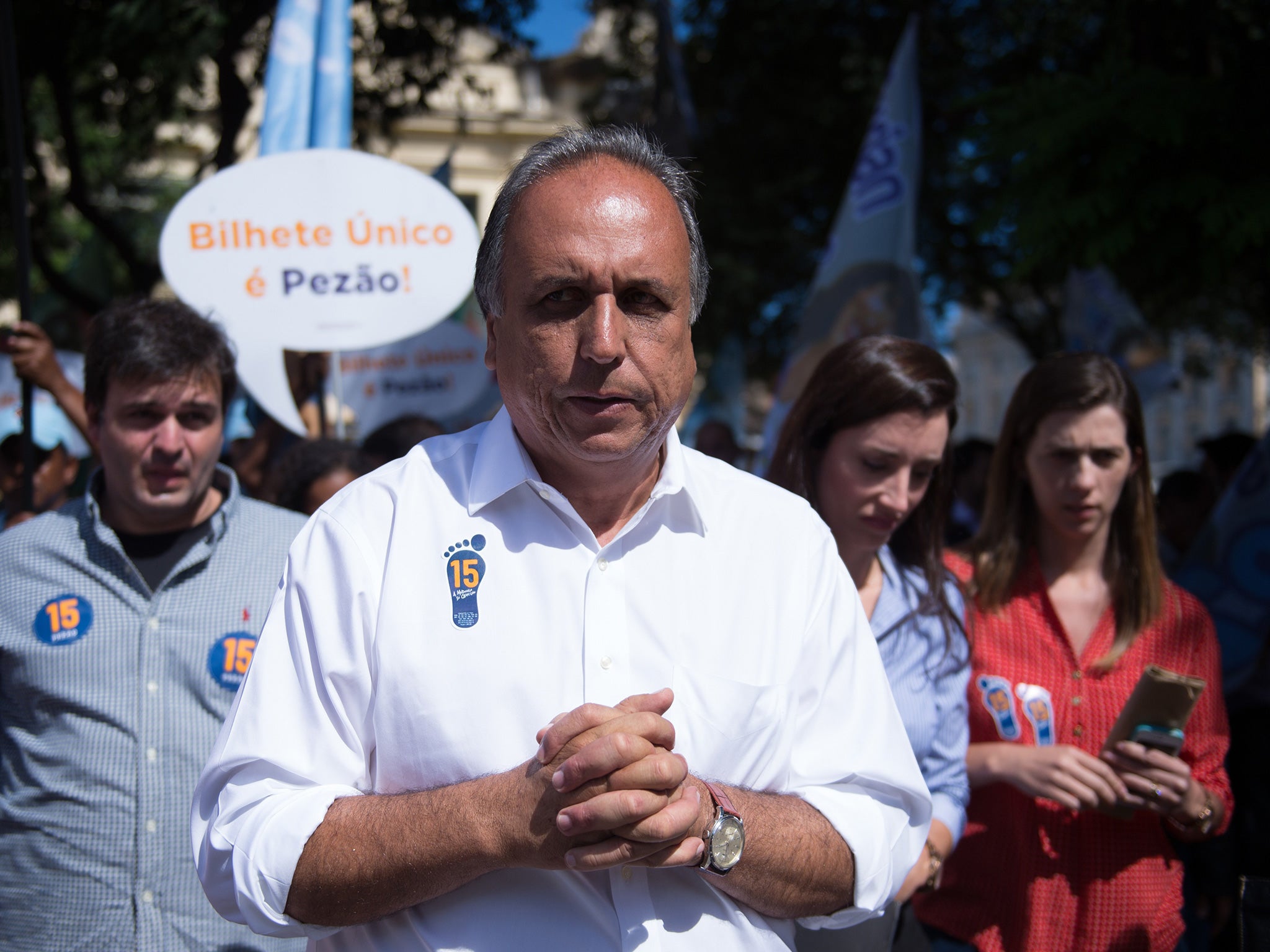Outrage over Rio de Janeiro police's 'symbolic apartheid'
Black youths are being detained to keep them away from tourist beaches

Police have been condemned for their policy of detaining youths – the majority of them black – to prevent them from reaching Rio de Janeiro’s tourist beaches, a practice that has been labelled as “symbolic apartheid”.
With the city gearing up to host the Olympics next year, bringing an influx of visitors, police have been stopping and searching busloads of young people on their way to the beaches – with some being transported to shelters until they can be collected by family – despite not having committed an offence or being found to carry drugs or weapons.
As part of the Olympic preparations, the city has put on a series of test events, held in the affluent south zone with its golden beaches packed with tourists. The use of the detentions is aimed at tackling the threat of arrastao, or “dragnet”, when a wave of youths descends on the beach, robbing those present, a phenomenon that has caused problems particularly in summer months. Beach-goers on Copacabana and Ipanema have become used to the presence of hundreds of police patrolling along the sand and at checkpoints nearby.
However, the arrest a week ago of 150 youths who had not committed any crimes and were not carrying drugs or guns, provoked outrage.
Vitor Coff del Rey, a youth worker for Educafro, a Rio organisation that works with black youths, said: “You are innocent until proven guilty. If young people commit a crime, they should be taken to a police station, not a shelter. It’s a kind of symbolic apartheid.”

The controversial strategy has now ended up in the courts. Judge Pedro Henrique Alves of the First Court of Childhood, Adolescence and Old Age, condemned it as illegal, and police and the municipal authority now have 14 days to present a new model of how to approach the situation.
Rio’s security chief, Jose Mariano Beltrame, has defended the “preventative” action, while the city’s governor, Luiz Fernando Pezao, said some of those arrested recently had been identified by police as previous offenders.
After the details of the latest raid leaked out in the Brazilian press, many youth workers and public defenders pointed out that the majority of those detained were also from poor areas.
“The police have been doing this every Sunday since the last arrastao in the summer,” said sociologist Ignacio Cano, a professor at the University of the State of Rio de Janeiro. “But the danger is they are picking up people who look suspicious, with no grounds. An arrastao is the ultimate nightmare for the higher classes of Rio. It’s a deep-rooted fear that social exclusion will explode into political violence.”
Mr Beltrame admitted there was nothing to prove that detained youths were going to commit an offence, but said many under-18s got on buses without paying the fare, with no food and no way of returning home later. It is this that institutions across the city needed to deal with by crafting a detailed strategy to combat such problems, rather than just let it “fall to the police to take action”.
“What people have not talked about is the total situation of vulnerability that you find these young people in,” he said.
Silas Tavares, 20, a young man from a favela in Rio’s north zone, said he is used to being viewed as a criminal by police or other citizens. “It’s intimidating. The other day, I was in a supermarket and a girl of only about 10 was buying fruit. When she saw me, she started shaking and ran out of there.”
Jonatas Waldemiro, 21, agreed that something needs to change. “I was on the bus coming back from university and the police stopped it. A policeman said they were looking for a thief. He looked directly at me and asked to search my bag. He didn’t ask the other passengers.”
Join our commenting forum
Join thought-provoking conversations, follow other Independent readers and see their replies
0Comments